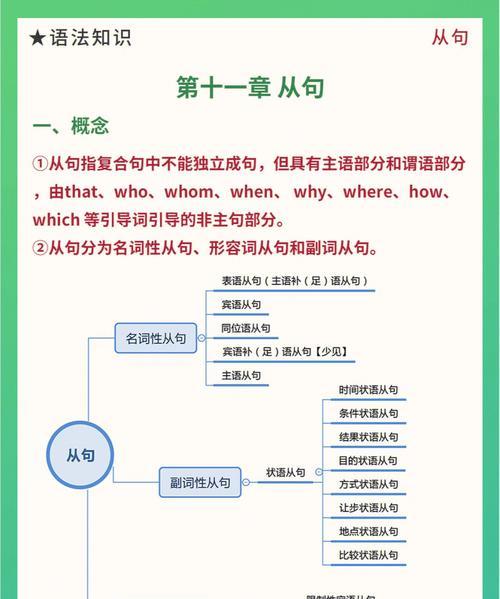英语从句是英语语法的重要部分,分为名词性从句、形容词性从句和副词性从句。名词性从句在句子中充当主语、宾语或表语;形容词性从句用来描述主句中的名词或代词;副词性从句用来描述主句中的动词、形容词或副词。掌握这些从句的语法知识对于提高英语水平非常重要。

名词性从句
名词性从句在句子中充当主语、宾语或表语。这种从句通常由一个连词引导,比如 that, if, whether, who, whom, whose, what, when, where, why, how 等。例如:
- What she said is very interesting.(她所说的非常有趣。)
- I don't know whether he will come or not.(我不知道他会不会来。)
- It's important that we arrive on time.(我们准时到达很重要。)
形容词性从句
形容词性从句用来描述主句中的名词或代词。这种从句通常由一个关系代词引导,比如 who, whom, whose, that, which 等。例如:
- The book that I'm reading is very interesting.(我正在读的书非常有趣。)
- The man who is talking to Mary is my boss.(跟玛丽说话的那个人是我的老板。)
- This is the house which I lived in when I was a child.(这是我小时候住过的房子。)
副词性从句
副词性从句用来描述主句中的动词、形容词或副词,通常由一个连词引导,比如 if, whether, when, where, why, how, because, although, since, until, unless 等。例如:
- I'll go to bed when I finish my work.(我完成工作后就去睡觉。)
- He is very angry because he failed the exam.(他因为考试不及格很生气。)
- Although it's raining, he still goes out for a walk.(虽然下雨了,他还是出去散步了。)

